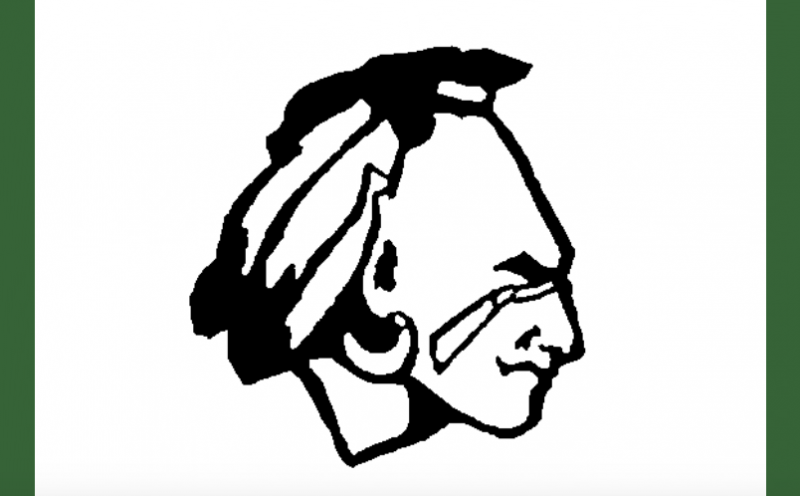Indians no more? Officials weigh in on school symbol
Officials at Dartmouth public schools have said they would “hate to lose” the Dartmouth Indian symbol after a recent debate in the Massachusetts legislature over two proposed bills that would ban the use of Native American mascots in public schools.
The Massachusetts Joint Committee on Education discussed House bill H.443 and Senate bill S. 247 in a public hearing on June 25.
Superintendent of Schools Dr. Bonny Gifford said in a written statement that she recently met with School Committee Chair Kathleen Amaral and Co-Chair Chris Oliver to discuss the proposed laws, but that they “did not develop a specific plan should the bills pass, not knowing if they will be forwarded or not.”
Gifford explained that if the legislation is adopted, Dartmouth schools would make plans to adhere to the law.
“Until such time we continue to ensure the Dartmouth logo remains one of respect for original settlers of the area,“ she stated.
According to Dartmouth High School Athletic Director Jeffrey Caron, this issue has come up at least a few times.
Caron explained that before he came to Dartmouth 11 years ago, a group from the Dartmouth Public Schools worked with the local Wampanoag tribe to come up with a logo that worked for everyone.
The tribe gave the town the green light to use that specific image with an accurate headdress.
“It’s not a generic image,” Caron said. “[The tribe] approved our use of those logos.”
He added that the school obeys strict guidelines for use of the image as well — including not using the logo on anything that can be stepped on, including the floor of the basketball court, and not using the word “Indian” on any athletic facilities, opting instead for the name of the town.
“We’ve always had a very good relationship and a good understanding between the town and the tribe,” he noted. “For us, it’s a rich part of our history — the history of the town. We’d really hate to lose that.”
For that reason, he said, “We’d love for [the Indian] to stay.” He said that he considers the symbol as more of a tribute to Native Americans than a caricature. “To me, it’s a sign of respect,” he added.
At the same time, many Native mascots have already been dropped across the state — including at colleges like UMass Amherst, which changed from the Redmen to the Minutemen in 1972, and high schools like Natick, which switched from the Redmen to the Red Hawks in 2012.
But plenty of schools across the state have held on to their Native-themed mascots, such as Braintree’s Wamps (short for Wampanoag), Tewksbury’s Redmen, and nearly 40 others.
Caron’s own alma mater, Merrimack College, kept its Warriors name but changed the mascot from a Native American to a Roman soldier around 15 years ago.
In Dartmouth, he said, “We’ve always been waiting for the other shoe to drop. But we’re hopeful it won’t.”
Chairwoman of the Wampanoag Tribe of Gay Head (Aquinnah) Cheryl Andrews-Maltais said in a written statement that since the 1600s, the state’s Native Americans have lived with many derogatory images that “seek to oppress, denigrate and or intimidate” them.
She noted, “most of the imagery depicting Indians and the history of this country has Indians being killed, under duress or posed in a subjugated position. Rarely are there depictions of us standing and or presenting us proudly.”
However, Andrews-Maltais added that the issue with derogatory images does not mean the tribe supports the erasure of all Native images in Massachusetts.
“To us, it is important to have the reminder of who the first aboriginal inhabitants of these lands are, since we as Wampanoag and all Eastern Woodlands Algonquian Indians are all too often forgotten,” she stated.
“So to erase the image of the Native, is to also continue to erase us from history and the specific history of the Commonwealth.”
This article has been updated to include more information about Massachusetts schools with Native American mascots.












